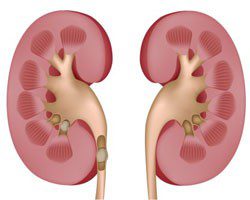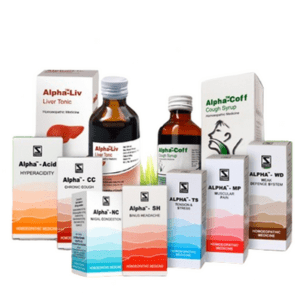
Prebiotics and Weight Management: The Surprising Connection
- Dr. P T Ponmani
- No Comments

Prebiotics are the food for good bacterial flora in the gut and are called probiotics. Eating foods or supplements that have both can help gain a healthy, balanced gut. Even though they sound similar, they play different roles in maintaining gut health. The good bacteria turn the prebiotic fibre into a short-chain fatty acid called butyrate.
Research suggests that butyrate production in the colon can only be maintained with adequate prebiotic fibre intake.
Prebiotics are carbohydrates that the body is unable to digest. They remain as food for the probiotic bacteria in the body. When prebiotics and probiotics are used together as a treatment, it is called microbiome therapy. Taking prebiotics may make the probiotics work more effectively.
Table of Contents
TogglePrebiotics and their functions
The human gut bacteria doesn’t allow any food to go to waste. They help to break down and digest food, enhance the immune system, and help reduce infection and inflammation in the gut and general health of the body.
Prebiotics play the role of a food source for the gut microbes by bypassing digestion and making their way to the large intestines. In the colon, the microorganisms use the prebiotics by metabolizing and fermenting them to survive. This process is very beneficial for gut health as it produces various other byproducts, such as vitamins and short-chain fatty acids, that help in several ways.
Different short-chain fatty acids are formed depending on the prebiotic when the prebiotics are broken down by the microbes in the gut. These short-chain fatty acids play a crucial role in gut health, providing energy to colon cells, producing mucus, reducing inflammation, and enhancing immunity.
Different microbes make use of varying prebiotics. Hence, not all prebiotics give the same result.
Also Read Why Weight Management is necessary & How to manage it with homeopathy
Functions of prebiotics
- They help in the metabolism of nutrients, regulation of appetite and regulation of the immune system.
- The gut microbes also influence the risk of developing certain conditions, such as obesity, colonic cancer, inflammatory bowel disease, and type 2 diabetes.
- Also, diet and lifestyle factors significantly affect the environment and types of microorganisms in the GI tract.
- Prebiotics are essential to a healthy microbial gut environment as they are the nutrients digested by gut microbes.
- Bacteria in the large intestine break down the prebiotics and release some byproducts, such as short-chain fatty acids. The byproducts released through the fermentation of prebiotics help enhance the functions of the cells lining the colon by acting as the energy source and benefit overall health in many other ways.
Benefits of prebiotics
The benefits of prebiotics are broader and of different varieties. Much research is being carried out to determine the function and actions of prebiotics on gut health, weight management and immunity. Some of the few things that are reported about prebiotics are:
- They help regulate intestinal motility.
- They help release neurotransmitters that relay signals between the gut and brain and help change mood.
- They act as an impetus to produce hormones that help regulate appetite and thirst, thus regulating body weight.
- They help mineralize bones by absorbing calcium and phosphorus, thus improving bone density.
- They help to improve the functions of immune cells and the functions of the immune system.
- They also help to reduce inflammation.
- By being the food for good bacteria, they also improve the quality of gut flora.
When to take prebiotics and when you should not
Since the body operates on a circadian rhythm, the microorganisms in the gut are more active during the day, so it is better not to have prebiotics too late in the evening.
People with inflammatory digestive problems like irritable bowel syndrome (IBS) may have trouble digesting specific prebiotics.
Prebiotic foods
Prebiotic foods are high in certain fermentable soluble fibres. Although many prebiotics exist, some common prebiotics are found in resistant starches like inulin and pectin. Foods that are high in natural prebiotic fibre are:
- Legumes,
- Oats
- Bananas, berries, Jerusalem artichokes
- Beans, peas, asparagus
- Dandelion greens
- Garlic, leeks and onions
What are the characteristics of prebiotics?
As per the International Scientific Association of Probiotics and Prebiotics, the characteristics of a prebiotic are:
- It should resist stomach acid and digestive enzymes, plus it should not be absorbed in the intestinal tract
- It should be able to be fermented by intestinal microbes
- It should stimulate the growth or activity of intestinal bacteria to improve health
Types of prebiotics
There are many types of prebiotics, including:
- Fructans
- Galactooligosaccharides
- Starch and glucose-derived oligosaccharides
- Pectic oligosaccharide
- Non-carbohydrate oligosaccharides
Side effects of prebiotics
Prebiotics with short molecular chains, such as inulin, are fermented faster in the first part of the colon. Contrastingly, prebiotics with longer chain lengths are fermented slower in the colon. Hence, short-chain prebiotics are more prone to cause gastrointestinal side effects.
Large doses of prebiotics more often cause specific side effects than smaller doses. While low prebiotics can lead to mild abdominal symptoms like gas, high doses can lead to diarrhoea. An average, healthy person can take a dose of up to 2.5–10 grams of prebiotics per day to reap enough health benefits. Though there are no dangerous side effects, they may not be suitable for everyone. If a person develops uneasiness or abdominal discomfort, they should talk to their family healthcare provider or professional nutritionist before continuing with prebiotics.
Summary
Prebiotics help improve digestion, increase intestinal movements, prevent constipation, regulate blood sugar levels, reduce inflammation and much more. To ensure the benefits of prebiotics, continued studies and research have to be conducted to confirm their functions. However, prebiotics are mostly considered a safe option for improving gut health and don’t lead to any dangerous side effects.
However, taking large doses may lead to symptoms like gas, cramps, diarrhoea, and bloating because prebiotics are fermented in the large intestine. Most prebiotics are carbohydrates, but some, such as Cocoa flavonols, are not classified as carbohydrates.
Most of the time, prebiotics are often confused with probiotics, but they are entirely different. Probiotics are living, good gut microbes, and prebiotics are dietary compounds that help stimulate the growth and activity of such microbiomes.
Natural prebiotics are rare in the food we take. Synthetic prebiotics are available as supplements and are added to certain foods to improve their nutritional content and health value. Prebiotics are also made into dietary supplements like powders and capsules to improve overall gut health.
Compared to probiotics, research related to the health benefits of prebiotics is much more limited.





























